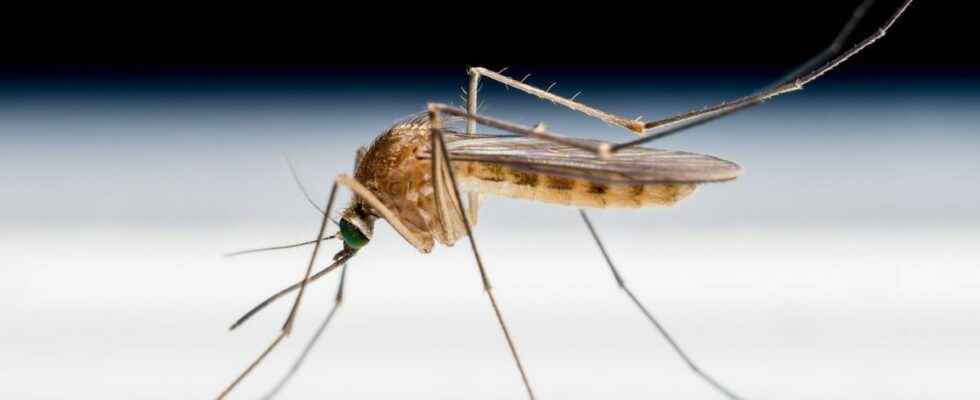Published on
Updated
Reading 3 mins.
Infectious agents are multiplying in France, and a few days ago, the Usutu virus was once again detected in mainland France. Transmitted by a mosquito, the virus was spotted in a resident of Landes, in New Aquitaine. Update on the infection it causes.
After chikungunya, dengue fever, Zika… Here is the Usutu virus. On November 10, an indigenous case (i.e. contracted on the territory) was confirmed in the Landes department, in New Aquitaine. This is the first case in this region and the second in France, the first dating from 2016.
What is the Usutu virus?
Usutu virus (USUV) is an emerging virus of African origin, of the genus Flavivirus and of the family Flaviviridae, the same family as dengue, yellow fever, West Nile fever or Zika viruses. It was identified for the first time in South Africa, in Swaziland in 1959, on the edge of the Usutu river (which it now bears the name), and reported in birds in Tuscany in Italy in 1996, then in Hungary , Switzerland, Spain and Germany. In France, monitoring of this virus in birds is carried out by the French Office for Biodiversity.
In Europe, the first human cases of USUVU were detected in northern Italy in 2009 in immunocompromised patients. In France, the virus has been circulating since 2015, but only 1 case of human infection, with a favorable evolution, was detected in 2016 in Occitanie (Hérault).
It is therefore transmissible by a simple mosquito bite, but generally, it circulates between birds and mosquitoes. Nevertheless, it happens that man is an “accidental guest”. This is the case of this patient who was infected in the Landes. After developing a flu-like picture with fever, headaches and body aches, she is now cured.
Usutu: the first case detected in 2016 in France
Prior to this patient, a man was diagnosed with the virus in 2016 and presented with facial paralysis as a symptom. Virologist Yannick Simonin, who worked on this case, reports this experience to The Conversation France : “The most likely scenario is that this man, like the patient identified in the Landes, was infected by a mosquito, after it bit a bird, a reservoir of this virus.“.
Indeed, the Usutu virus is generally transmitted by the Culex mosquito, which circulates significantly in France. “The Usutu virus was an illustrious unknown until recently, but it has recently captured the attention of the scientific community due to its extensive spread in Europe. Little is known about the target cells of Usutu. Nevertheless, our team recently described its ability to infect in vitro (in laboratory cultures) not only nervous system cells, but also the nervous system of rodents“explains Yannick Simonin.
Few cases in Europe, mainly spotted in Italy
According to the virologist, “the first human case was reported in the Central African Republic in the 1980s, the second in Burkina Faso in 2004. For these two cases, the symptoms were moderate, including a rash and mild liver damage“.
In Europe, there are almost 80 cases of acute human infections with the Usutu virus, mainly in Italy. “In addition, more than 100 people with antibodies against this virus have been listed, demonstrating that these individuals have been exposed to the pathogen.“, specifies the virologist.
Watch out for the spread of this virus!
Infections can go unnoticed because according to Yannick Simonin, “The human infection is probably most often without symptoms, or presenting a benign clinical expression. However, neurological complications such as encephalitis (inflammation of the brain, part of the brain housed in the cranial box) or meningo-encephalitis (inflammation of the brain and the meninges, the membranes which envelop it) have been described, totaling about thirty cases in Europe”.
According to him, the case of the paralyzed patient of the face diagnosed as the first case in France shows that “the extent of symptoms of Usutu virus infections is not fully known“and therefore calls for vigilance vis-à-vis this virus.
